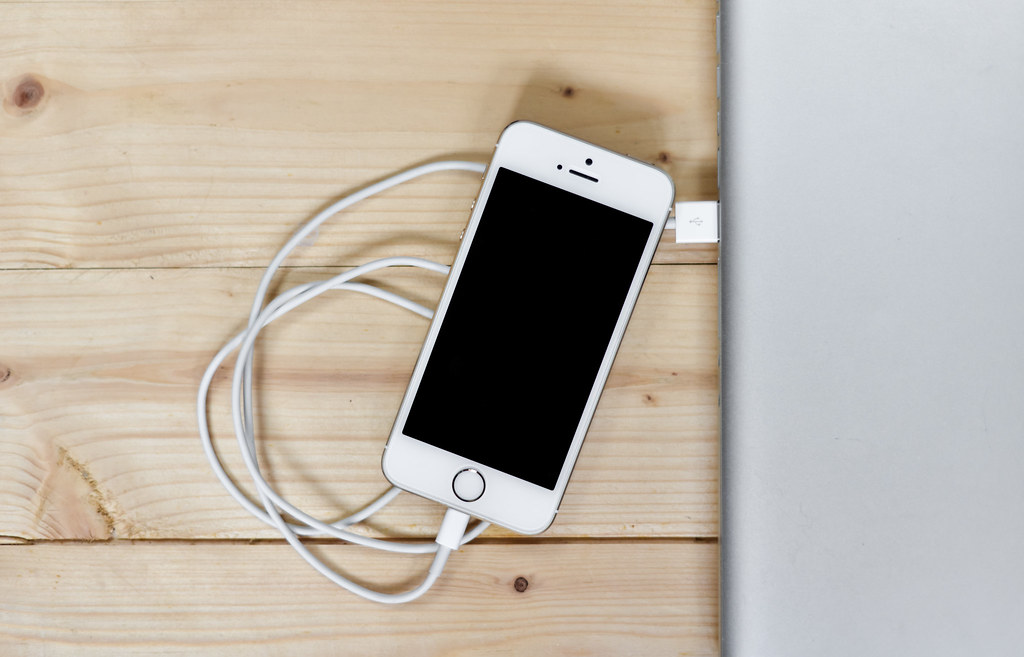Students, teachers, and administrators all share their views on cellphone usage here at Kettle Run.
Cellphones in school have been shrouded in controversy ever since portable cell phones became popular. However, with the advent of the smartphone, the usage of cellphones in schools has only become more controversial. Swiftly publishing information via social media, the ability to record at a moment’s notice, stream video, and numerous other utilities of the modern smartphone are all concerns teachers and administrators have had to deal with in recent years.
The effects of phones on students are also an issue that is often overlooked compared to disciplinary issues. With children now being glued to their phones from a young age, they don’t know how to manage their time with their devices properly. Mr. Malloy said, “Whether it is a cellphone, an iPod, a computer, their watch, their video games, I think people are more comfortable with interacting with a screen than interacting with people.” According to the BBC, the average person spends a staggering 4.8 hours on their phone per day. This substantial amount of time can harm a student’s social life in the long term because they are using their devices rather than developing socially.
Addiction is also an overlooked effect of phones. Mr. Scaring explained, “People are using it [cellphones] a little too much, and they’re getting cranky if they don’t get a chance to use it.” The Mayo Clinic claims that some characteristics of addiction is struggle without what you are addicted to and “continued action despite negative consequences.” Mr. Scaring added, “While I’m not convinced we’re at the addiction stage, I do think there is a little bit too much usage right now.” cellphone addiction has become a growing problem in our society.
The problems with cellphones haven’t remained unaddressed; there are policies in the county that pertain to electronics. The county gives individual schools a lot of leeway and freedom when it comes to this. According to the Code of Conduct, unallowed use of electronic devices can result in “up to and including a maximum of five days suspension from school.” Mr. Malloy also said, “They [the county] are updating a device policy, but it is not specific towards cellphones.” The county builds an outline of what our schools can do with devices.
Our school functions a little differently from exactly what is outlined. Mr. Malloy clarified, “Each school, in a sense, can establish their own rules. Currently, we give the autonomy for teachers to establish the rule in their own classrooms.” He also explained, “Next year, I believe they’re will be a device policy that’s equal across the board.” As of now, teachers are given some freedom to control phones in their classrooms, but some teachers have some grievances with the current policy.
Many teachers feel as though our school could be doing more to enforce its rules. One teacher said, “It’s [the county policy] there, but rarely enforced to the degree that the policy is written.” Another shared, “A policy is only as good as the consistency that comes with enforcing it.” Teachers generally feel that the policy is reasonable, but our school needs to do more to enact it.
Some teachers feel the policy itself is flawed. Mrs. Krasny said, “They [the county] let the cat out and now they’re trying to stuff the cat back in. We have two classes now from Auburn Middle School that know they are not to have cellphones all day long, so why are we not building on that?” Mr. Scaring shared, “I think the rule for the whole school could be beefed up a little bit more. I would give teachers a little more leeway to do things like hold onto phones until the end of class.” More power for teachers to enforce rules in class could go a long way.
The liberty our school gives its teachers to enforce their own rules leads to disciplinary differences in separate classrooms. According to a survey taken around our school by 19 teachers, about 58% of teachers allow phones to be used when work is done. Teachers also use different preventative measures for students using phones. 47% of teachers just have students keep phones in their backpacks, while an equal 26% each have students keep phones in their pockets or a designated area. Teachers create different policies across their classes.
Students often use cellphones in school. Out of ten students, they all agreed to use their phones during school. When it comes to students who don’t allow cellphones, one student said, “I don’t blame them since so many kids just go on their phones instead of doing their work.” However, all interviewed students agreed that cellphones should be able to be used when work is done. Another said, “ I think that if you focus on your work then you should be able to keep your phone with you.” Students concur that the privilege of using a cellphone should be allowed in school for students who behave appropriately.
The use of cellphones is not exclusively negative; students enjoy them, but there are other utilities as well. Mrs. Krasny said, “I had a former student who is a social media influencer and right now at age 20 she is making $10,000 a month. She leveraged it for really powerful things.” Mr. Scaring also said that his class often uses phones for Kahoots. Some have different opinions; Mr. Malloy stated, “A cellphone isn’t needed because everyone’s assigned a Chromebook.” Some believe cellphones have a use, while others feel they cause more harm than good.
The way students use their devices can also interrupt class. Mrs. Krasny and Mr. Scaring said they encounter students using their phones at inappropriate times nearly daily. When it comes to disruption, one teacher claimed, “Children lack the discipline necessary to manage their behavior. The temptation is too great.” Mr. Scaring said, “Mostly, it’s a distraction. Occasionally there’s a noise factor.” Cellphones can make teaching more difficult for teachers in the classroom.
Overall, cellphones in school are still a relatively new technology and educators are still figuring out how they can, or if they should function in pedagogy. Cellphones are a new frontier, and the effects they have are still being observed. New policies are made to this day concerning their usage. Technology is constantly changing and evolving. They can be a hindering factor or one for good, but students and teachers still need to learn how they can co-exist in school.





















